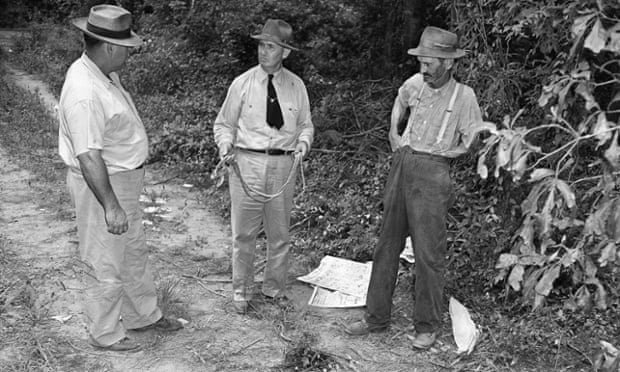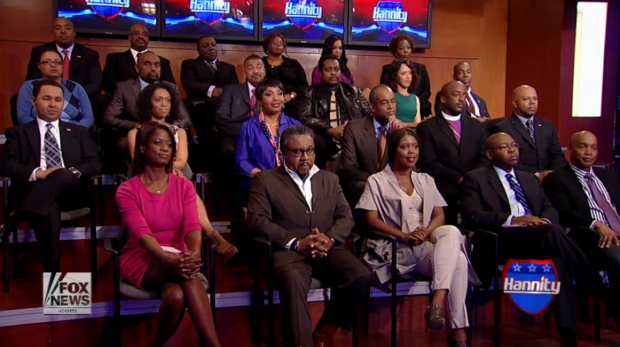
I knew that
Piyush was a fraud. Just like other conservatives who put their greedy paws on government, he has finally showed us how ineffective his way of governing really is.
It didn't take long for him to be exposed in Louisiana, and I suspect that the higher his profile gets the more the rest of us will see that he talks a good game but when the
rubber meets the road he can't deliver.
"BATON ROUGE, La. (AP) — Year after year, Louisiana didn't have enough money to cover its expenses, yet Gov. Bobby Jindal refused to roll back income tax cuts or ever-increasing corporate tax breaks. Instead, he raided reserve funds and sold off state property.
Jindal suggested job growth from his economic development wins would replenish those assets once the recession ended. It hasn't — and money from the lucrative oil industry has taken a nose dive with crude prices. Now, the Republican is running out of short-term patches and is struggling to plug a $1.6 billion budget hole just as he tries to build support for a possible 2016 presidential run.
Funding for higher education and health care services will almost certainly be subject to cuts deeper than what they already have endured in recent years, and Jindal's successor will have to repay a string of debts and IOUs.
"They've used all the smoke that was in the can and all the mirrors that they could buy and now they're out of tricks. Their solution is to gut higher education like a fish," said Republican state Treasurer John Kennedy.
As for Jindal, he said in a recent interview that the shortfall isn't his fault, and he dodged any talk of his temporary fixes.
"The shortfall next year is almost entirely due to the declining revenues, and the vast majority of that is due to falling oil prices," he said.
The numbers, however, don't back up the governor's explanation.
More than $1 billion of the shortfall on the horizon for the fiscal year that begins July 1 can be tied to Jindal's refusal to match the state's spending to its yearly revenue over his two terms in office — as he also steadfastly refused to consider tax increases.
When Jindal took office in 2008, he positioned himself as a fiscal conservative who decried budget shell games akin to "using your credit card to pay your mortgage." It didn't take long to ditch that rhetoric and shift the focus to saving critical services with any money available.
Jindal scraped together what he could from all sorts of funds: railroad crossing safety, artificial reef construction, housing programs and the blind. He pieced together money from one-time legal settlements and property sales, using it to pay for continuing programs. Lawmakers went along, and Louisiana has careened from one budget crisis to the next as the dollars either don't pan out or the sources of financing dry up and need replacing.
"Our budget has been full of sleights of hand — it's almost a Ponzi scheme of moving moneys around, one-time money around, to serve recurring needs," Lt. Gov. Jay Dardenne, one of the Republicans vying to be Louisiana's next governor, said at a recent forum.
Jindal said those patchwork fixes aren't really "one-time dollars" because the state has similar types of money available to pull together annually. "They have been here year after year," he said.
The governor has successfully trimmed some spending by cutting more than 30,000 full-time state employees. He's reduced the state's vehicle fleet, privatized much of the Medicaid program, turned over the state's charity hospitals to outside managers and looked for ways to make state government more efficient.
That hasn't closed all the gaps, however, and Jindal's short-term solutions leave a string of debts for Louisiana's next governor to pay off.
The state owes $190 million to federal officials for improper Medicaid spending in hospital privatization deals, an order being appealed, and a $270 million repayment to the state "rainy day" fund in 2017 as part of a legal settlement. Economic development deals will cost the next governor at least $340 million over his first four years.
Far fewer savings accounts will be left to pay those liabilities because Jindal drained or reduced trust funds.
As complaints grew louder in recent years, the Jindal administration defended attacks from Democrats and conservative Republicans who decried budgets reliant on accounting gimmicks, claiming its budgeting protected needed programs without raising taxes.
When he talks of his record in national appearances, Jindal doesn't mention the budget troubles. He describes cutting Louisiana's budget from $34 billion in 2008 to $25 billion — but doesn't explain much of that drop comes from spending down one-time federal recovery dollars after hurricanes Katrina and Rita.
The state's general fund, by comparison, has only dipped from $8.7 billion to $8.4 billion during Jindal's seven years in office.
Previous governors have used piecemeal financing to fill budget gaps over the years. Jindal's two immediate predecessors, Republican Mike Foster and Democrat Kathleen Blanco, each used up to $600 million in such "one-time" funding to stop cuts in particular years.
But Jindal's use of such financing reached new highs, a situation the chair of the Louisiana Democratic Party, state Sen. Karen Carter Peterson of New Orleans, called "a ticking time bomb."
New money hasn't rolled in, despite promises that tax revenue would increase from multibillion-dollar manufacturing and petrochemical projects announced by the Jindal administration in the last few years." [More]
We got rid of ours here
in Pistolvania, but there are governors in Ohio and
Wisconsin running the same trickle -down "Ponzi scheme" , and they are hoping to ride their slight of hand governing methods all the way to the White House.
Let's see if Americans catch on before it's too late.
Finally, I am glad that a major news outlet like the
New York Times is reminding us Americans of our hypocricy when it comes to our history of terrorizing a race of people and condemning others for doing a similar thing.
" It is important to remember that the hangings, burnings and dismemberments of black American men, women and children that were relatively common in this country between the Civil War and World War II were often public events. They were sometimes advertised in newspapers and drew hundreds and even thousands of white spectators, including elected officials and leading citizens who were so swept up in the carnivals of death that they posed with their children for keepsake photographs within arm’s length of mutilated black corpses.
It is important to remember that the hangings, burnings and dismemberments of black American men, women and children that were relatively common in this country between the Civil War and World War II were often public events. They were sometimes advertised in newspapers and drew hundreds and even thousands of white spectators, including elected officials and leading citizens who were so swept up in the carnivals of death that they posed with their children for keepsake photographs within arm’s length of mutilated black corpses.
These episodes of horrific, communitywide violence have been erased from civic memory in lynching-belt states like Louisiana, Georgia, Alabama, Florida and Mississippi. But that will change if Bryan Stevenson, a civil rights attorney, succeeds in his mission to build markers and memorials at lynching sites throughout the South as a way of forcing communities and the country to confront an era of racial terror directly and recognize the role that it played in shaping the current racial landscape.
Mr. Stevenson’s organization, the Equal Justice Initiative, took a step in that direction on Tuesday when it released a report that chronicles nearly 4,000 lynchings of black people in 12 Southern states from 1877 to 1950. The report focuses on what it describes as “racial terror lynchings,” which were used to enforce Jim Crow laws and racial segregation. Victims in these cases were often murdered without being accused of actual crimes but for minor social transgressions that included talking back to whites or insisting on fairness and basic rights." [Source]
I wish
Mr. Stevenson luck. Americans do not want to remember this part of their history. Sadly, this is a part of their history that they would very much like to forget.
*Jindal pic from Think Progress.

 It is not one of his classic
It is not one of his classic  US authorities are investigating whether some of those responsible for one of the American south’s most notorious mass lynchings are still alive, in an attempt to finally bring prosecutions over the brutal unsolved killings.
US authorities are investigating whether some of those responsible for one of the American south’s most notorious mass lynchings are still alive, in an attempt to finally bring prosecutions over the brutal unsolved killings. "Beau Hansen, 31, and Jonathan Henery, 29, are not guilty of hate crimes under a federal law passed in 2009, a jury announced Friday morning.
"Beau Hansen, 31, and Jonathan Henery, 29, are not guilty of hate crimes under a federal law passed in 2009, a jury announced Friday morning.
 Finally, I am sorry, but Brian Williams
Finally, I am sorry, but Brian Williams 

















